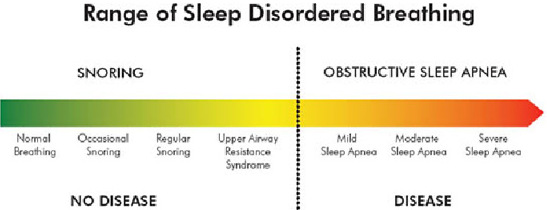Could you have sleep apnea?
- Approximately 15 million Americans suffer from sleep apnea.
- People with sleep apnea are 3 times more likely to be involved in motor vehicle accidents
- 90% of sleep apnea patients have not been diagnosed.
- Do you snore?
- Do you have high blood pressure?
- Have you gained weight and find it difficult to lose?
- Do you have unexplained awakenings from sleep?
- Do you awaken from sleep gasping for air or choking?
- Do you notice frequent twitching of jerking of legs while asleep?
- Do you lack energy upon waking in the morning?
- Do you have a headache upon waking in the morning?
- Do you often lay in bed unable to fall asleep?
- Do you wake up during the night and are unable to fall back asleep?
- Do you find it difficult to stay awake during the day?
If you answered yes to multiple questions, a sleep consultation may help you!
What we can do to help
Sleep Study
We use a small device to conduct an in-home sleep test. We have a great local sleep clinic to refer patients to when and over night or CPAP study is needed.
Sleep Appliance Therapy
Dr. Duke offers a variety of Sleep Apnea devices. All are designed to keep the lower jaw from falling backwards and blocking the airway.
Myofacial Exercies
- Tongue Thrust, Incorrect Swallowing
- Mouth breathing
- Thumb and Finger sucking habits
Who is at risk?
- Sleep Apnea can affect anyone, even kids! However, there are some risk factors that increase a person’s risk:
- Having a small upper airway or large tongue, tonsils or uvula
- Being overweight
- Large girth, belly
- Having a recessed chin, small jaw or a large overbite
- Large neck size
- 17 inches or greater in a man
- 16 inches or greater in a woman
- Smoking and Alcohol Use
- 40+ years
Possible Symptoms
- Daytime sleepiness
- This is often different to just being tired. People with severe OSA may fall asleep during the day, with serious
consequences. For example, when driving, especially on long monotonous journeys such as on a motorway. - A particular concern is the increased frequency of car crashes involving drivers with OSA. Drivers with OSA
have a 7-12 increased risk of having a car crash compared to average. You should not drive or operate
machinery if you feel sleepy.
- This is often different to just being tired. People with severe OSA may fall asleep during the day, with serious
- Poor concentration and mental functioning during the day
- Not feeling refreshed on waking
- Morning headaches
- Depression
- Being irritable during the day
- Restless Leg Syndrome
